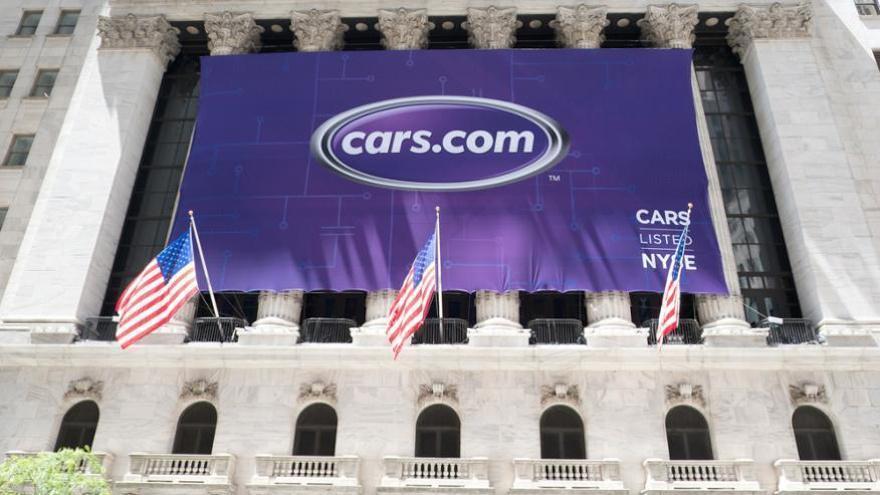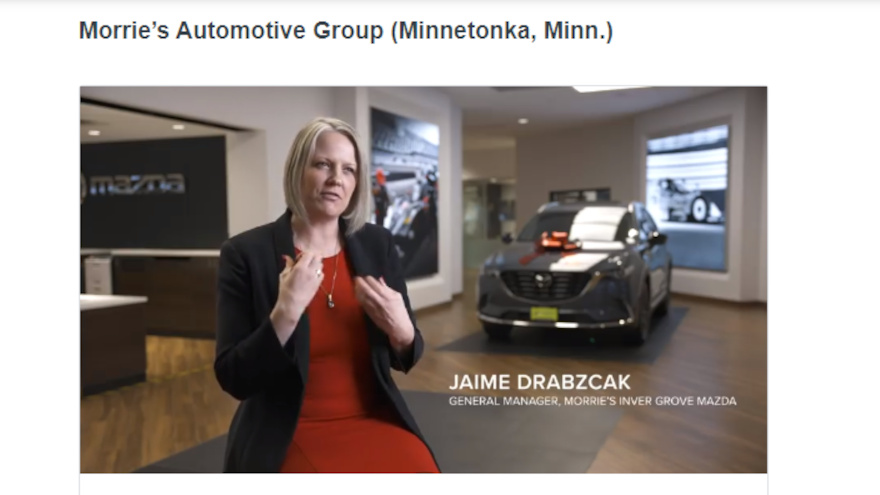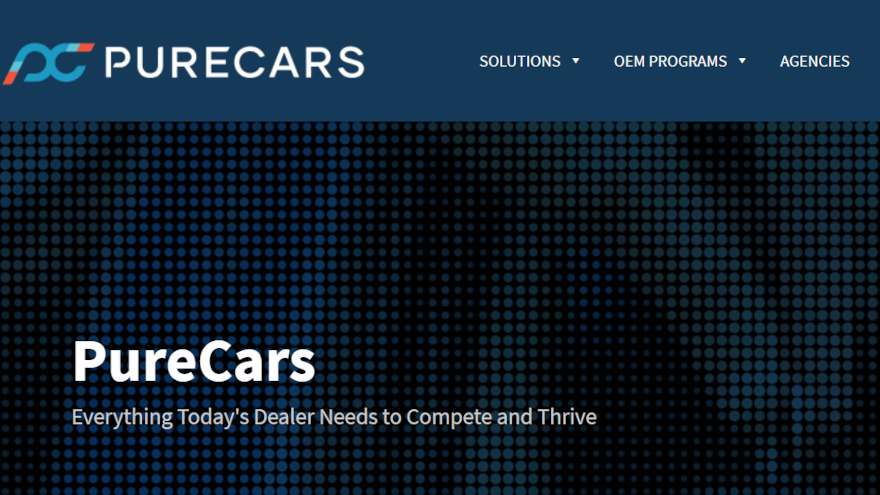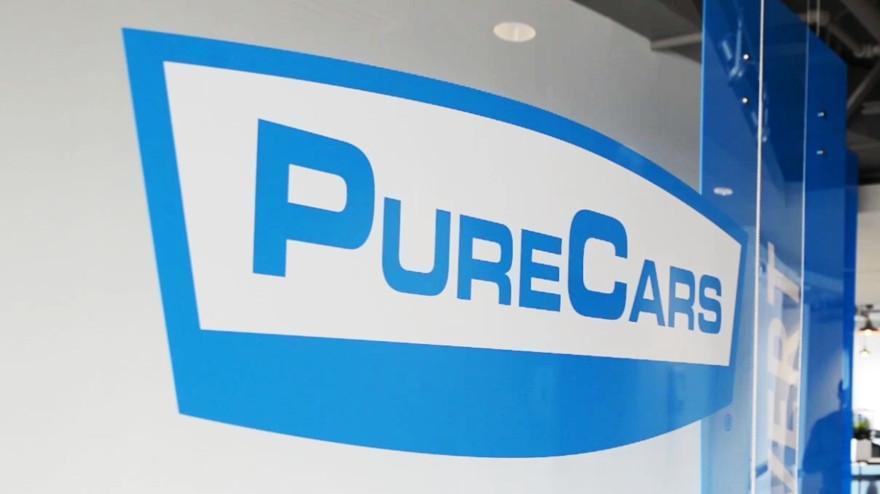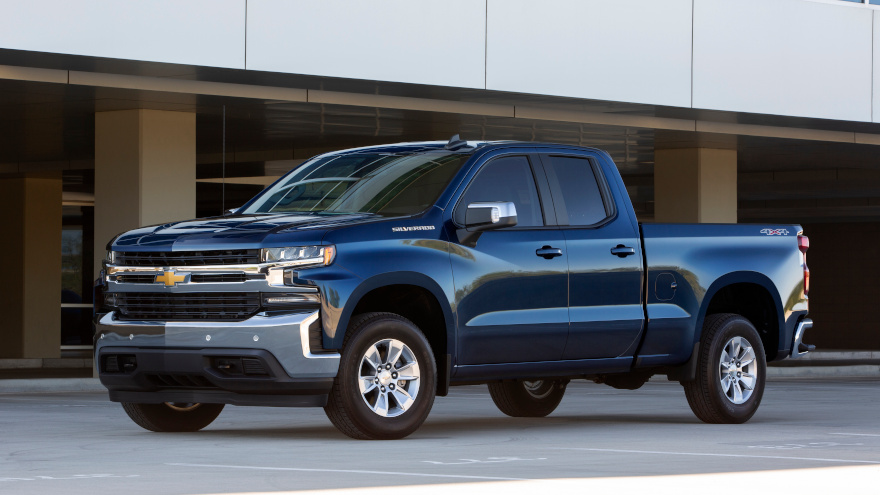Marketing technology company Force Marketing, which offers products and services to more than 950 automotive dealers, has acquired the business of GS Marketing, which is also a marketing technology company.
The Jan. 31 closing of the deal brings the total number of dealerships served nationwide to more than 1,500.
Force Marketing’s full portfolio of companies includes the WeDrive Automotive, Helix Technologies and DRIVE video technology brands. Those companies provide customers with data-driven technologies such as omni-channel dynamic video and streaming audio.
Force Marketing said it has experienced strong growth through its development of tech-enabled marketing products and services built for scale for large automotive dealer groups, Tier II ad associations, and OEMs.
The company’s acquisition of GSM’s business adds fixed ops marketing capabilities for parts and service departments to its legacy portfolio of variable ops services for dealership vehicle sales.
Force Marketing said its president and chief executive officer John Fitzpatrick has been in automotive marketing for 15 years. Fitzpatrick grew up in the industry, with a data-driven approach to business.
Fitzpatrick co-founded Force Marketing in 2006 as a family-owned digital marketing company. The company said its purpose is to disrupt the automotive retail industry by using data, technology and personalization to improve the consumer shopping experience.
Force Marketing now serves four of the top five U.S. automotive groups, including Berkshire Hathaway Automotive, Penske Automotive, Lithia Motors and Sonic Automotive.
“For nearly 30 years, GSM has been developing and delivering data-driven marketing strategies and creative services. We quickly saw how aligned both companies are in purpose and expertise,” Fitzpatrick said in a news release.
Fitzpatrick went on to say, “In addition to bringing complementary tech platforms and fixed ops marketing solutions to our family of companies, the acquisition allows us more concentrated geographical expansion into the Midwest and Western United States. GSM’s partnership expands our ability to serve dealers across the country and furthers our vision of transforming the brand-to-consumer buying experience.”
Founded in 1988, GSM is an omni-channel fixed ops marketing services company that works to increase customer acquisition and retention for dealerships.
GSM president Shelley Washburn will remain in her role, overseeing the transition that will be followed by a controlled growth strategy with the Houston-based team.
Continuing to operate under the GSM brand, the company will remain headquartered in Houston. It will provide its same service to dealers, with plans to soon expand its offerings of marketing services such as direct, digital, social and streaming media as a result of the acquisition.
Washburn said Force Marketing and GSM focus on auto industry customer service. But the companies bring different customers to the table, she said.
“We have deep, longstanding relationships with our customers, a dedicated team of professionals and strong expertise in fixed ops marketing,” Washburn said.
She went on to say, “Force has created a best-in-class omni-channel marketing platform and this integration will allow GSM to provide dealers with new front-to-back consumer lifecycle marketing solutions. GSM is over 30 years old, and we have such renewed excitement about our future and what lies ahead for our employees and our dealer partners.”
A new nationwide brand campaign from Cars.com highlights what it describes as the breadth and depth of its first-party data, paired with smart matchmaking technology.
With that breadth and depth, the Cars.com marketplace can connect its more than 20 million monthly unique car shoppers with the vehicles that meet their needs and budgets, according to the company.
The new campaign is called, “It’s Matchical,” and Cars.com describes it as an evolution of the themes of its 2018 “We Met on Cars.com” brand campaign, demonstrating the results from intelligent curation.
“It’s more than magical; it's ‘matchical,’” Cars.com wrote in a news release.
Cars.com adds 50,000 new and used cars daily from local U.S. dealers, saying that it allows car shoppers to never miss the chance to find their perfect match.
“Cars.com has been creating car chemistry for nearly 25 years, and we've learned it’s both art and science that creates a lasting connection between Americans and their cars,” said Cars.com chief experience officer Brooke Skinner Ricketts.
Ricketts also said, “We've seen car buying and selling transform toward virtual first at an incredible pace in the last year. Shoppers want a personalized experience that curates their choice based on data science and their personal preferences. Our combination of vast selection of fresh inventory with intelligence enables us to meet these demands like no other marketplace can.”
The integrated creative campaign rolls out nationwide on Monday, with presence across TV, connected TV, digital video, social media, display, radio and digital OOH.
The company said the Cars.com experience includes content and nearly 10 million consumer reviews. With Cars.com’s digital-first capabilities, consumers can connect with local dealers through live video and online chat, experience a virtual test drive, and choose from millions of vehicles available for contactless, local home delivery.
The campaign’s new TV spots are titled, “Diner” and “Everywhere” and will be shown during the 2021 NCAA Division I Men's Basketball Tournament in March and will air nationally throughout 2021.
The public can experience the new spots at the company's YouTube channel.
The auto industry has been very rewarding for Jaime Drabzcak.
“So what I would say to anybody considering it: Try it. You probably will fall in love with it,” said Drabzcak, who is general manager of Morrie’s Automotive Group in Minnetonka, Minn.
Drabzcak made those comments as part of a video submission from her dealer group to the National Automobile Dealers Association’s 4th annual Women Driving Auto Retail Video Contest.
NADA on Wednesday announced Morrie’s as the contest winner during NADA’s first-ever Women Driving Auto Retail Virtual Happy Hour. NADA held the event in conjunction with NADA Show 2021.
The association launched the video contest in 2019, and it is part of NADA’s Women Driving Auto Retail initiative.
That initiative features the current voices of women working in dealerships and encourages other women to pursue automotive careers.
The video contest highlights women who work in all areas of car or truck dealerships. The contest encourages more women to pursue an auto retail career.
Because the COVID-19 pandemic had a strong impact on the country and the auto retail industry, NADA for this year’s contest asked women working in dealerships to share how they have adapted during these times. NADA asked entrants to share In a video of three minutes of less why the auto retail industry is still a great career path.
“I think 2020 challenged us in ways that really, at first, we thought we wouldn’t overcome, but no matter how hard it got, people kept showing up,” Morrie’s Automotive Group director of human resources Lisa Thorton said in a news release. “I think that speaks to the resiliency of this business. It speaks to the resiliency of our people.”
“I’m proud to see all of the amazing submissions received during the four years of the Women Driving Auto Retail Video Contest,” said Cascade Auto Group managing partner and NADA board member Michelle Primm, who announced the winner.
Primm also said, “This is where we get to witness how women have been making strides in auto and truck dealerships across the country. The stories we receive are nothing short of inspiring.”
The winner will receive a $1,000 gift card plus complimentary registration to NADA Show 2022 in Las Vegas.
The other nine semifinalists announced in late January will receive a $500 gift card. Those nine semifinalists are
— Meghan Pakenham, Autosport Acura of Denville, Hillsborough, N.J.
— Ana Loredo, BMW of San Diego, San Diego, Calif.
— Teri Saenz, Dewey Ford, Ankeny, Iowa
— Dick’s Auto Group, Hillsboro, Ore.
— Rhiannon Maloney, Honda North, Clovis, Calif.
— Maple Hill Auto Group, Kalamazoo, Mich.
— Marysville Toyota, Marysville, Wash.
— Michelle Kornman, Paul Miller Motor Company, Lexington, Ky.
— Jennifer Carroll, Trophy Nissan, Dallas
A joint study between Facebook and PureCars shows the impact social marketing tools have on dealers that rely more heavily on digital retailing while cutting advertising expenses.
Understanding how today’s digital advertising resources measure and attribute offline sales back to Facebook/Instagram was one purpose of the study, which took place during the first quarter.
The study also sought to show the overall impact advertising on those channels has for automotive retail clients.
According to the study, Facebook’s Automotive Inventory Ads brought a 23% increase in vehicle sales, at a $136 cost per incremental sale. That is compared to the traditional dynamic product catalog ads on Facebook.
The analysis showed test dealers also achieving 83% of their retargeting audience and 11% of their prospecting audience. PureCars says those are significant numbers for the average automotive retailer.
In conducting the research, Facebook and PureCars studied online and offline engagement and sales rates resulting from Facebook’s automotive inventory ads and retargeting campaigns for 16 auto dealers.
For the research, observers launched a lift test in January to attempt to show the incremental impact Facebook advertising has on a dealer’s business.
Observers tracked online actions (VDP views and leads) and offline actions (vehicle sales).
PureCars chief executive officer Jeremy Anspach said an increasing number of consumers use digital retailing resources during the research, shopping, and transacting phases of vehicle buying.
“At the same time, many automotive retailers have cut their advertising spending but are still looking for ways to connect, engage and convert automotive shoppers,” Anspach said in a news release.
Anspach continued, “Auto dealers are realizing there is great power and cost efficiencies found in social marketing today that’s even more robust than just a few short years ago, and today’s sophisticated attribution technology makes it more accurate to determine ROI.”
PureCars said the high 76.4% increase in dealership web traffic means the campaign was responsible for bringing a great deal of traffic to the dealer’s site.
That, in turn, populated the retargeting audience. PureCars said that helped fuel the retargeting campaign, and that was the engine behind attribution for clearer ROI identification back to the dealer’s advertising expenditure validation.
Tech-enabled advertising agency Stream Companies says it has been chosen as a premier partner in the FordDirect Advantage Digital Advertising program, noting that with the partnership, Stream now has access to more Ford and Lincoln consumer data.
Stream says it has been in advertising for more than 20 years, and the company said the new partnership means it can bring “even more retail traffic to Ford and Lincoln dealers.”
The company said it will use its increased access to more Ford and Lincoln consumer data to fuel its “results-driven approach.”
Among Stream’s main advertising services are paid search advertising, digital video advertising, social media advertising, behavioral targeted advertising, search engine optimization, media, website merchandising, creative services, shopper suite and MyShowroom.
The company says it unifies traditional and digital services to connect dealerships’ brick and mortar and online showrooms for “stronger marketing and increased sales.”
It does that by implementing AI-enabled technologies and an integrated team of people using “measurable data to chart each dealership’s unique growth story.”
Stream Companies chief executive officer and co-founder David Regn said the company was excited about how the partnership will help Stream deliver services for its Ford dealer partners.
“We look forward to introducing our fully integrated advertising media and technology approach to Ford and Lincoln dealers across the country,” Regn said in a news release.
Eighty-two percent of dealers said they would rely heavily on social media advertising such as Facebook and Instagram for the rest of this year, according to a new survey from PureCars.
Sixty-two percent said they would use direct marketing channels, and 61% would use SEO/search marketing efforts to reach customers.
The PureCars survey found that dealers’ digital advertising strategies have shifted since the beginning of the COVID-19 pandemic and so have their advertising strategy plans for the remainder of the year.
“It goes without saying that dealership advertising patterns were most disrupted in the spring, following the initial outbreak of COVID-19,” PureCars chief executive officer Jeremy Anspach said in a news release.
The survey also seems to illustrate a decline in interest for using traditional broadcast media for advertising. That represented the lowest percentage in the survey, at 33%. Traditional print media was next lowest at 37%, followed by traditional media signage/billboard at 38%.
Forty-eight percent of dealership executives mentioned connected TV as a channel for reaching customers.
In addition to where and how dealers will spend their advertising dollars, PureCars also surveyed dealer participants about which messages they will convey to customers. PureCars said it was not surprising that 83% of dealers said they will use messages about COVID-19 cleanliness.
Sixty-seven percent said they would use messages about digital retail/contactless.
PureCars said a surprising survey result was that dealers are choosing to promote payment over price as their advertising message. Sixty-seven percent said they promoted F&I options. That is followed by great offers at 64%, and trade-ins at 63%.
Anspach said after the spring disruption in dealership advertising patterns, dealers “quickly regrouped,” and dealership advertising has shown a steady rebound through summer and into fall.
“The dealers surveyed confirmed what we’re already seeing, which is a boost in digital advertising plans for the balance of year and into 2021,” Anspach said.
Anspach continued, “We’ve seen dealers invest in channels and tactics they never considered as critical prior to 2020. These unprecedented times have forced dealers to rethink their digital advertising and sales strategies, inspiring more creative approaches to solving tactical, as well as operational challenges that have yielded impressive results, benefiting both dealers and consumers.”
Anspach was also on a recent episode of the Auto Remarketing Podcast, which can be found below.
Costco Auto Program and Chevrolet are teaming up on an exclusive program for Costco members: The Chevrolet Limited-Time Special.
The Chevrolet Limited-Time Special features three models that are popular with Costco members: Silverado, Tahoe and Suburban.
Costco says the Silverado — offered in light-duty and heavy-duty models — has been the pickup truck most requested and purchased by Costco members for the past nine years through Costco Auto Program. Affinity Auto Program manages the program.
The Chevrolet Tahoe and Suburban also rank among the top five large SUVs that Costco members request. The Tahoe was the most-requested model in the first quarter of this year.
The program runs through June 30. Eligible Costco members registering at CostcoAuto.com/Specials and purchasing or leasing a new 2019 or 2020 model can combine a $1,000 Costco member-only incentive with Chevrolet incentives for which they qualify. Full details, terms and conditions are available at CostcoAuto.com/Chevrolet.
Costco says customers don’t want a one-size-fits-all truck. Because of that, Chevrolet offers various Silverado models for its light-duty and heavy-duty trucks. Different engine options are available across those models. Those include a 3.0L Duramax diesel rated at 33 mpg highway. Tahoe and Suburban bring features and technologies that customers want, according to Costco, including advanced powertrains, advanced safety features and connectivity.
Costco Auto Program first joined with Chevrolet and General Motors in 2011 to provide exclusive savings opportunities for Costco members. During that first event, the Chevrolet Silverado was the most-requested model. In the following years, it continued to be the most requested. During the last fourth-quarter promotion that ended Jan. 3, it led vehicle sales again. During the three-month promotional period, it represented about 18% of models purchased.
“Chevrolet is pleased to provide Costco members such an exclusive discount,” Chevrolet director of truck and SUV marketing Bob Krapes said in a news release.
Krapes continued, “Savvy members know a good deal when they see one, and the Silverado, Tahoe and Suburban are the perfect vehicles to haul goods home even on the largest of shopping trips.”
Costco Auto Program general manager Rick Borg said the $1,000 incentive along with additional publicly available incentives represents a strong savings opportunity for Costco members.
“We’re happy to deliver this exceptional value on these highly sought-after trucks and SUVs,” Borg said.
If you ask Spencer Scott why CarGurus launched its Real-time Performance Marketing suite nationwide, he starts by saying that dealers noticed how CarGurus had grown its own audience.
“And they were turning to us to ask us how they could do that for their own website,” said Scott, who is the company's senior vice president of advertising and digital marketing, in an interview with Auto Remarketing.
Real-time Peformance Marketing, or RPM, is designed for dealerships to strengthen their digital marketing programs.
Scott says that digital is becoming more important to dealers, and they want to drive traffic “that converts to their sites.”
As CarGurus provided advice, the company realized products and technology were available that it could offer dealers to help them drive high-performing traffic to their sites.
“And we decided to take this on as a product initiative,” Scott said.
The result is RPM, and CarGurus says that through its’ engaged car shopping audience of more than 38 million unique U.S. monthly visitors, dealers using RPM will see more high-quality traffic to their websites and locations through multiple digital channels.
CarGurus says that through RPM, dealerships gain the ability to target CarGurus audiences with an omnichannel approach. That means use of channels such as targeted display ads, paid search, social ads and retargeting ads.
Expanding on the omnichannel approach, Scott said, “It’s just the nature of digital right now.”
Scott continued, “Where omni-channel is important is we want to be able to capture that consumer across any channel where we can find them, and the most prevalent to our targeted display. And this is that targeted display ad on another premium publisher site.”
As an example, he provided a scenario in which a consumer is on the ESPN site, “or social, because social is a good-performing channel.”
“We don’t want to just focus on finding one place where we can target consumers,” he said.
He continued, “We looked at this omni-channel approach: Consumers are interacting with the internet across multiple sources. And our technology allows us to find those consumers wherever they’re interacting.”
He explained that the core components of the program include having information to exactly match the consumer with the inventory he or she is viewing, being “real time inventory aware” to ensure the vehicle is available, and “dynamically assembling and creating” for a high click-through rate for a consumer that is actually in market for that vehicle.
The company says RPM also provides dealerships with the ability to improve their social marketing by exclusively reaching CarGurus shoppers on Facebook, which according to CarGurus is a “high-converting social platform.”
RPM can also help dealerships boost their digital marketing performance through real-time analysis that it says automatically adjusts campaigns and budget allocation across channels.
Scott also said in a news release that the multi-channel digital marketing approach will help dealerships navigate the current car buying environment in which shoppers are shopping online “but taking many different paths to find the right vehicle.”
“What really excites me having spent 20 years in this space, is that now we have a chance to map together consumer interest and real time inventory,” Scott told Auto Remarketing.
He said RPM simply helps match consumers with dealers that have the inventory the customer wants, “as close as real time as possible.”
“And ultimately … the holy grail of a market or an advertiser is to market to consumers that have something that’s available right now in that local area,” he said.
He continued, “And we’re uniquely positioned in automotive to deliver against that, and that’s really exciting.”


